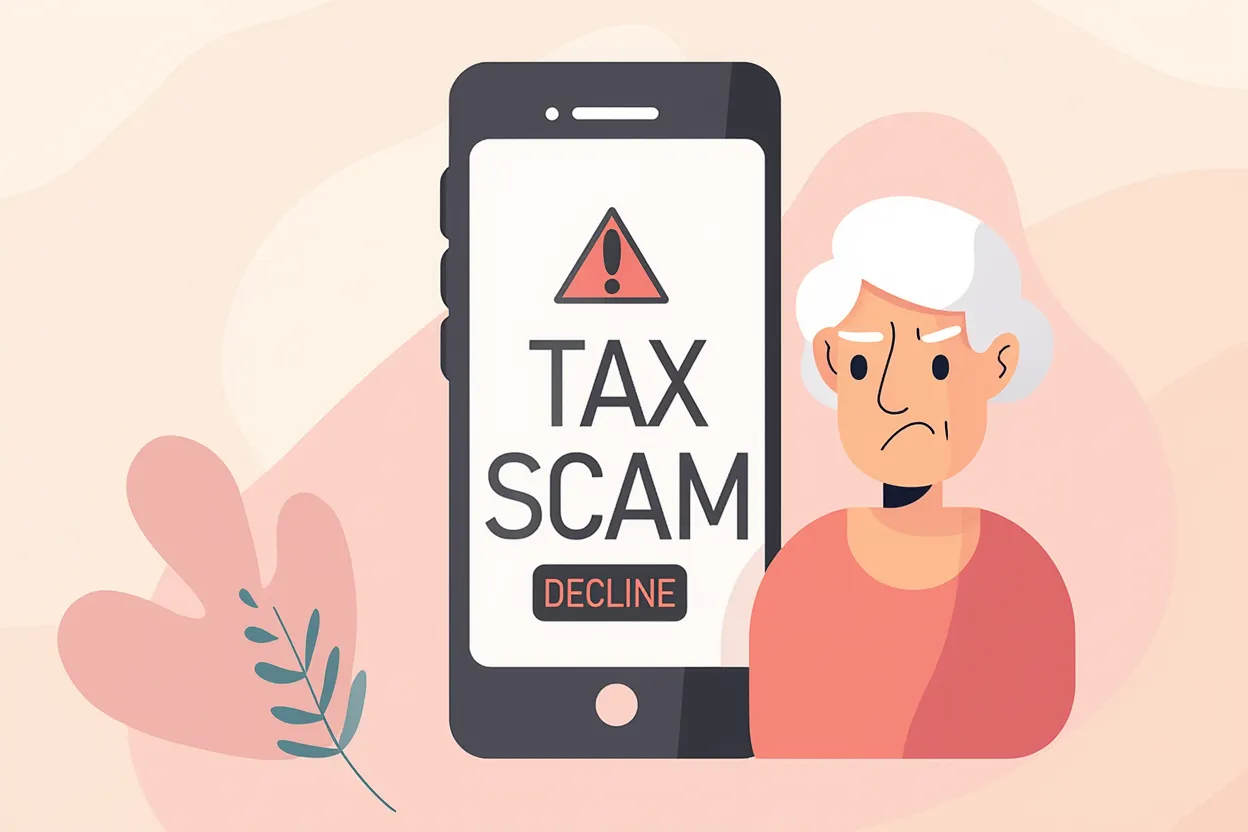The Takeaway
- Scammers now use AI voice cloning to mimic loved ones’ voices with stunning accuracy.
- Victims often get frantic calls from “grandkids” claiming to be in trouble and needing money fast.
- New research finds 1 in 8 adults over 60 has been targeted by a voice-based AI scam in 2025.
- Experts say never act on emotion—always hang up, verify, and call the real person back.
- Lawmakers are pushing for new AI labeling rules and penalties for misuse.
When the phone rang at 8:47 p.m., 79-year-old Helen didn’t hesitate to answer. The voice on the other end—trembling, scared—said, “Grandma, I’ve been in an accident. Please don’t tell Mom.”
It sounded exactly like her grandson. Same tone, same little stutter he had as a kid. Within minutes, a man claiming to be a lawyer got on the line, telling Helen to wire $9,800 for bail.
Except her grandson was at home, safe—and the whole thing was fake.
How the Scam Works
The latest twist on the “grandparent scam” uses AI voice cloning technology, which can replicate a person’s speech patterns and tone from as little as three seconds of recorded audio. Yes, this scam has been around a couple of years, but with the speed that AI can mimic anyone doing anything is more realistic than it's ever been.
That’s enough for a criminal to scrape a short clip from TikTok, Instagram, or even a voicemail greeting, feed it into a cloning tool, and generate a realistic voice on demand.
Researchers at the University of California, Berkeley found that the cost of cloning a voice convincingly has dropped below $10 using public tools. Many of these tools don’t require any verification that the user owns the voice they’re mimicking.
“The emotional manipulation is the same old playbook, but the technology makes it feel real,” said Dr. Hany Farid, a digital forensics expert at UC Berkeley who studies deepfake scams. “Our brains are wired to trust familiar voices.”
Real-World Damage
A Washington Post investigation found that hundreds of seniors nationwide have already lost thousands to AI-voice scams this year.
In one Arizona case, a retired couple drained their emergency fund after getting a tearful call from what they believed was their granddaughter, saying she’d been arrested while traveling abroad. The cloned voice matched so closely that even the girl’s mother later admitted she couldn’t tell the difference on a playback recording.
Losses are skyrocketing: according to the Federal Trade Commission (FTC), reported elder-fraud cases involving “synthetic voice or video impersonation” are up 740% year-over-year.
How to Protect Yourself
- Use a family “safe word.” Agree on a private phrase to confirm real emergencies.
- Hang up and call back. Use a known number to verify—never the one provided in the call.
- Limit what’s public. Be cautious about posting videos with kids or personal audio clips.
- Ask for a video chat. Scammers using voice only will avoid showing their face.
- Report scams immediately. File with the FTC or call your local police non-emergency line.
Experts say families should treat these scams like fire drills: talk through what to do before the call ever happens.
“The goal is to short-circuit panic,” said Kathy Stokes, director of fraud prevention at AARP. “Once fear kicks in, reason goes out the window.”
Lawmakers Take Notice
Congress is debating the AI Fraud Prevention Act of 2025, which would require companies that create or sell voice-generation tools to verify identity and watermark synthetic voices. Tech firms like OpenAI and ElevenLabs have already pledged to add digital “fingerprints” to AI-generated audio, but experts warn it won’t stop bad actors using offshore servers.
Until then, seniors—and their families—remain on the front lines.
Sources:
- Washington Post: AI Voice Cloning Scams Surge
- arXiv Research on Voice Deepfake Fraud (Aug 2025)
- Federal Trade Commission – Report Fraud
- AARP Fraud Watch Network
Disclaimer: This article is for general informational purposes only and does not constitute legal or cybersecurity advice. Seniors should contact local law enforcement or the FTC if they suspect fraud and consult trusted professionals before sharing personal or financial information.









